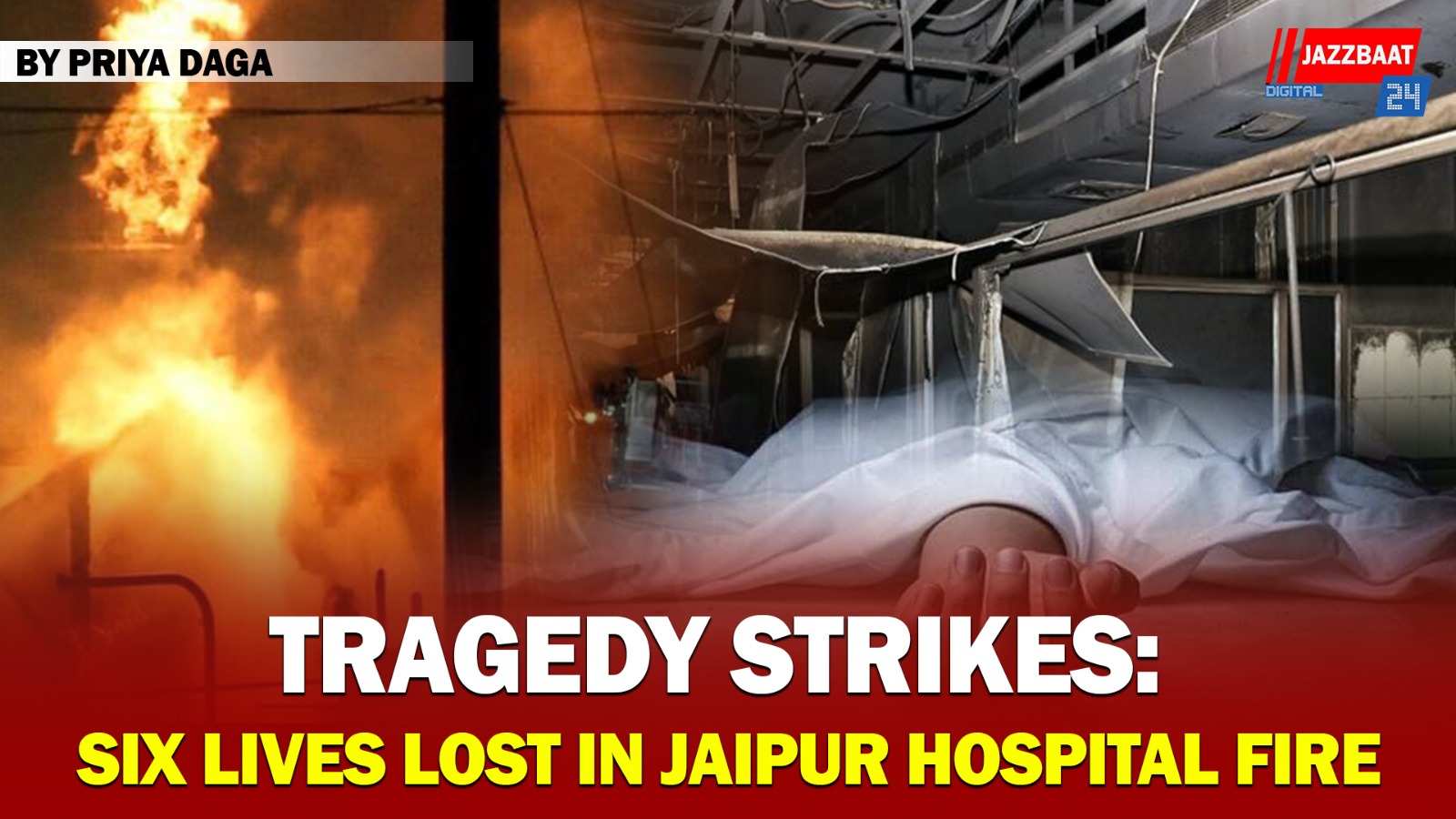
A devastating fire at Jaipur's SMS Hospital claimed six lives late Sunday night, raising serious questions about safety protocols at one of Rajasthan's premier medical facilities.
The blaze erupted in the storage area of the hospital's trauma centre, where 11 critical patients were receiving treatment in the Neuro ICU. Officials suspect a short circuit triggered the fire, which quickly filled the ward with thick smoke, creating panic among patients and families.
Dr. Anurag Dhakad, the trauma centre in-charge, confirmed that six patients—two women and four men—died in the incident. The victims, identified as residents from Sikar, Jaipur, and Bharatpur, were in critical condition when the fire broke out. Fourteen other patients in a separate ICU were safely evacuated.
Hospital staff and attendants worked frantically to move patients to safety, with some wheeling beds directly outside the building. Vikas, a ward boy present during the incident, described the harrowing rescue efforts. "We heard about the fire while in the operating theatre and rushed immediately. We saved three to four patients before the flames became too intense," he told reporters.
Firefighters battled the blaze for nearly two hours, breaking windows to access the smoke-filled ward. The fire destroyed medical equipment, documents, and supplies, adding to the tragedy's toll.
As authorities investigate, families of the deceased have raised disturbing allegations. Several attendants claim they noticed smoke early and alerted hospital staff, but their warnings went unheeded. "The staff ignored us and were the first to flee when the fire broke out," one angry relative said. "Now no one can tell us about our patients."
These accusations have intensified calls for accountability. Chief Minister Bhajanlal Sharma, who visited the site, called the incident "extremely unfortunate" and promised swift action. The state government has formed a high-level committee led by Medical Education Commissioner Iqbal Khan to investigate the causes, examine safety measures, and recommend preventive steps.
Opposition leaders have been vocal in their criticism. Congress leader Sachin Pilot, who also visited the hospital, blamed negligence for the disaster. "There must be accountability and swift action," he demanded. Former Chief Minister Ashok Gehlot echoed these sentiments, urging a thorough probe to prevent future tragedies.
Prime Minister Narendra Modi expressed his condolences on social media, calling the loss of life "deeply saddening." But beyond sympathy, this tragedy demands concrete action.
The incident exposes critical gaps in hospital safety infrastructure across India. Fire safety audits, functional equipment, staff training, and emergency response protocols cannot be afterthoughts—they must be priorities, especially in facilities treating vulnerable patients.
As the investigation unfolds, six families mourn loved ones who came to the hospital seeking care but never returned home. Their deaths serve as a stark reminder that healthcare facilities must not only heal but also protect those within their walls.